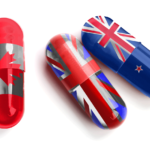As GP waiting lists in some areas of the state balloon, the Health Minister is looking at areas where community pharmacists can fill the gaps.
The Queensland pharmacist-led UTI prescribing trial could very well be expanding southward over the coming months, with reports that NSW Health are actively looking into the prospect.
According to the Sydney Morning Herald, NSW Health Minister Brad Hazzard has asked the state health department to investigate running a replica of the Queensland trial.
“There are parts of the state where it is extremely tough to get in to see a GP and there are some conditions, like UTIs, that I think lend themselves to the possibility of pharmacists having an expanded scope of practice,” Mr Hazzard said.
Under the Queensland program, which is now running permanently, community pharmacists can prescribe a course of antibiotics to women under 60 years of age who present with the symptoms of an uncomplicated UTI.
The trial period ran for 18 months, with the Queensland government, the Pharmacy Guild of Australia and the team who ran and evaluated the pilot all declaring it a success.
In May of this year, AMA Queensland ran its own survey, estimating that at least 240 patients across the state had developed complications from misdiagnosis after being treated as part of the trial.
AMA Queensland vice president Dr Nick Yim, a GP in Hervey Bay, told The Medical Republic that his team would be working closely with their counterparts at AMA NSW if the new trial goes ahead.
“What AMA Queensland and our clinicians have learned [from] our patients who were treated for urinary tract infections within a pharmacy environment, is that [it was] treating based on symptoms,” he said.
“There is no urine test, they don’t send any urine away to check for sensitivities and to actually confirm that it was a urinary tract infection.”
His main concerns were the number of women lost to followup in the Queensland trial, as well as the lack of reporting mechanism for clinicians who did pick up adverse outcomes.
“Some sources have just [told] doctors to report to the Office of Health Ombudsman and obviously that is not an appropriate forum to report to,” Dr Yim said.
“We do need a specific area to report these adverse account outcomes to when they do occur.
“That’s something that we might be liaising with AMA NSW on.”
Dr Yim, a former pharmacist himself, said the Guild keeps “changing the goalposts” in terms of pharmacist scope of practice.
“It’s all well and good doing an online course, but an online course is totally different to supervised practice in this realm,” he said.
AMA federal president Professor Steve Robson said the idea of running the trial to NSW amounted to a “lack of respect for general practice” as well as the years of training required to properly diagnose and treat a medical condition.
“We know from the Queensland trial that it did not relieve pressure on emergency departments, but instead resulted in women waiting longer for treatment for conditions that are easily mistaken for UTIs, including pregnancy, pre-cancerous conditions, and sexually transmitted infections that can lead to infertility,” Professor Robson said.
Dr Michael Bonning, president of the NSW chapter of the AMA, called the proposal “disappointing”.
“Government is looking for quick fixes for the health system crisis, but pharmacist prescribing will result in higher healthcare costs and poorer patient outcomes,” Dr Bonning said.
The announcement that NSW Health is looking into running a pharmacist prescribing trial comes on the same day that the RACGP is holding a crisis summit in Canberra looking at the pressures facing general practice.





